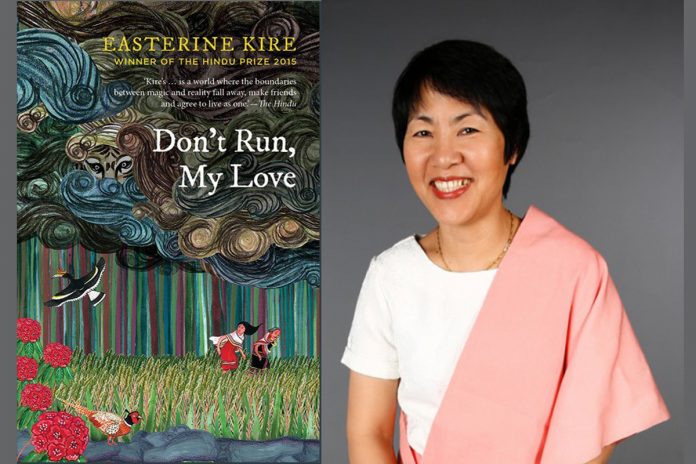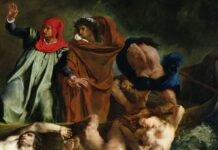Book Review by: Anjana Basu
Easterine Kire takes Naga folk tales and weaves them into stories that could belong to any time and place, set as they are in rural areas dominated by the annual crop and the rains and the upheaval of the seasons. Don’t Run My Love tells the story of a mother and her pretty daughter who meet a handsome young man called Kavi as they are harvesting their paddy.
Atuonuo should be getting married but has refused the few young men who have asked her – however, she loses her heart to Kavi. The young man appears and disappears at will and causes a buzz among the villagers when he starts leaving gifts of meat because gifts if made with a honest heart lead to proposals of marriage amongst the patriarchal society of the Angami Nagas. Kavi ultimately proposes but the whimsical Atuonuo chooses to be difficult only to regret it later.
Kire balances her narrative with a kind of delicate tension – will she, won’t she, what will he do? Atuonuo’s mother Visenuo, a young widow, is at a loss for a solution though she does want her daughter married and Kavi is too good looking to resist. As in many folk tales the unbelievably good looking young man proves to be an evil spirit – the weretiger that haunts the legends of the North East and Atuonuo realizes to her horror that she has to escape before he destroys her.
Nature aids the story with thunder and lightning and descriptions of bloodstained clothes add to the drama. Not that Kire depicts the weretiger in his full horror – she sketches details like a hairy face, pointed teeth and sharp nails and describes him scolding tigers that come roaring round the hut in which he and Atuonuo have taken shelter from the storm.
The mother and daughter who are forever following the forest trails are forced to follow them again in search of a mysterious village whose inhabitants have no wars with weretigers and refuse to help rid Atuonuo of her demon lover. Beyond parables we know that love sometimes conjures up its own demons and Don’t Run My Love could be a metaphysical example of what happens when a lover is rejected for no reason at all and the girl in question plays hard to get.
There is a streak of Red Riding Hood to it when the only rescuer available is a young wood cutter with his axe who is aware of the weretiger’s pedigree.
As always Kire describes the culture of the Nagas, a world very different from the rest of India, isolated by trees and mountains and surrounded by legends – not that she describes too much, just a mention of trees and thunder and hail or a single chair in an isolated room, a touch and no more . Her works focus on the mysticism of her home state and draw out the tensions that afflict the lives of its women, especially those who are without legitimate male relatives to help them. Visenuo, for example, cannot accept her neighbour’s help because she has heard his wife make snide comments about the young widow. Instead, she focuses on bringing up her daughter and teaching her to be honest and hard working so that at eighteen, Atuonuo is as strong as her mother though she is afraid of darkness and unknown things.
In the end it is a story about the learnings from love and the importance of being as strong as the woods and hills and the spreading branches of the wood apple tree that guards the village where mother and daughter seek refuge.
( Don’t Run, My Love– Published by Speaking Tiger Books / Speaking Tiger Publishing Pvt. Ltd, India)
About the author:
Easterine Kire is a poet, novelist, short-story writer and writer of children’s books. Her first novel, ‘A Naga Village Remembered’, was also the first Naga novel to be published in English. Her other novels include ‘Son of the Thundercloud, Bitter Wormwood’ and ‘When the River Sleeps’.
Anjana Basu is a renowned novelist, poet, reviewer and travel writer.
















